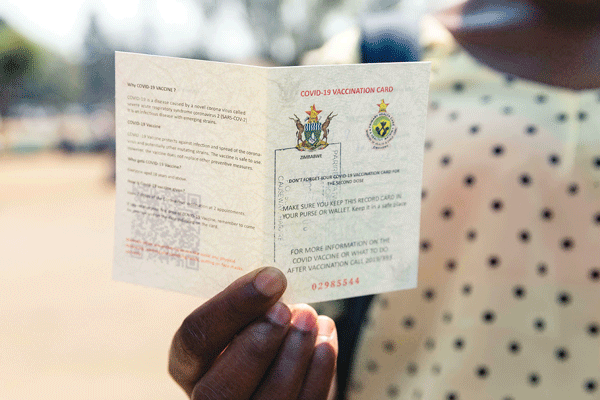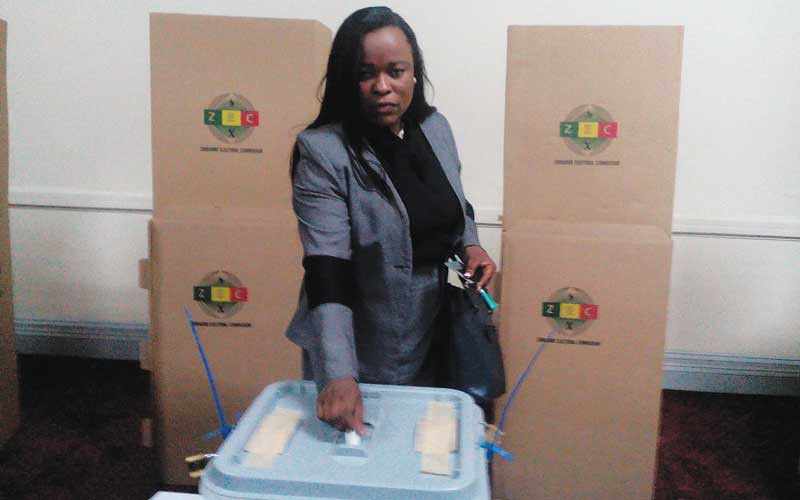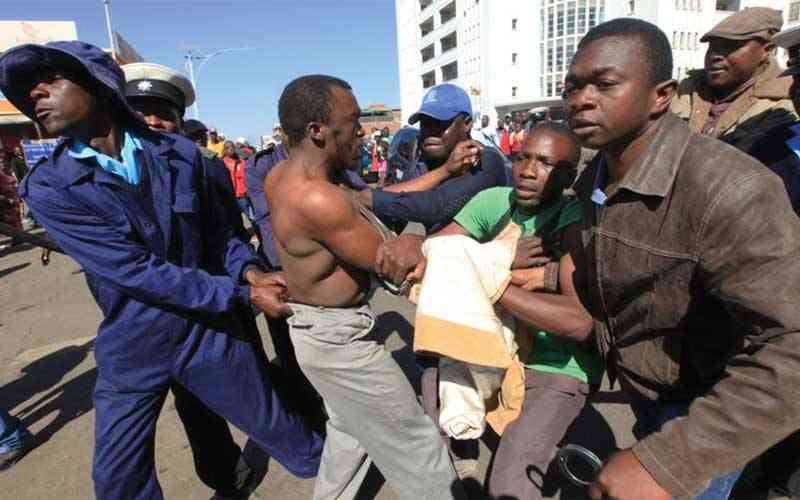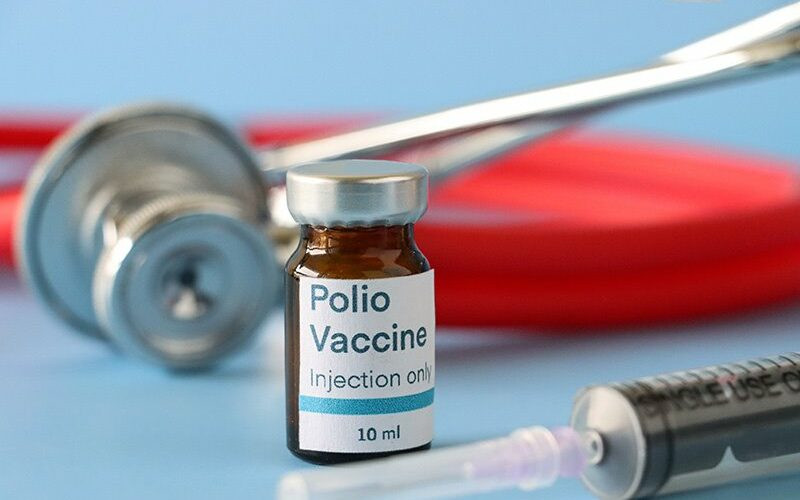
LATELY, there have been media reports alleging theft of COVID-19 vaccination cards which then find their way on to the black market for sale to unvaccinated individuals.
The Zimbabwe Democracy Institute (ZDI)’s latest access to public health monitoring report gives insights into these occurrences and the impact of distorted data in the public health sector.
Effects
Government’s failure to address incapacitation of healthcare workers in Zimbabwe is proving to be a catalyst of corrupt activities across many health centres in Zimbabwe.
The requirement of COVID-19 vaccination evidence in the form of vaccination cards in some employment and leisure spheres has seen many people scrambling for vaccination cards without necessarily going through the normal and accepted vaccination process.
Cases of COVID-19 vaccination cards’ theft and disappearance from vaccination centres have found their way into mainstream media in Zimbabwe.
An enquiry carried out by ZDI revealed that details of people buying COVID-19 vaccination cards are entered into the official vaccination database.
It suffices, therefore, to say the reported number of people vaccinated includes people who bought vaccination cards and had their details entered in official database.
- Chamisa under fire over US$120K donation
- Mavhunga puts DeMbare into Chibuku quarterfinals
- Pension funds bet on Cabora Bassa oilfields
- Councils defy govt fire tender directive
Keep Reading
There is a risk of chasing a dummy COVID-19 herd immunity if the rot in the public health sector is not urgently addressed.
Government’s health facilities visits: Action is what matters most
Government through Health deputy minister John Mangwiro in September visited a number of public health facilities across the country.
This came against a background of an unprecedented deterioration in the country’s healthcare infrastructure coupled with healthcare personnel brain drain.
The major contributing factors to this situation are severe social and economic challenges bedevilling Zimbabwe.
Of much concern is the state of public healthcare facilities in the rural areas. –ZDI
COVID-19 pandemic exposed gross inequalities among the working class
THE Vendors Initiative for Social and Economic Transformation (Viset) yesterday joined the world in commemorating World Day for Decent Work (WDDW).
This year’s commemorations came at a time when hundreds of millions of lives and jobs have been lost worldwide due to the COVID-19 pandemic, the majority of these being those in the least paid sectors such as the cleaning industry, transport and construction sectors.
Owing to lockdown restrictions, women were left with the additional burden of having to supervise home schooling as well as being the primary caregiver in homes without regard to their own physical and mental wellbeing.
As is the case with the cleaning industry and food processing and distribution, they were also in the majority and severely affected as they lose productive hours which is not compensated.
The COVID-19 pandemic highlighted the gross inequalities among the working class of the world as there was little to no difference between the fate of those involved in menial jobs be it in the First or Third World, as they both had no access to healthcare nor more crucially social protection.
In Zimbabwe, like in many other countries, social protection was provided through inadequate, knee jerk interventions that had no safeguards against abuse, hence it came as no surprise that the Auditor-General revealed in Parliament on August 2 that there had been gross abuse of the cushioning fund facility administered through one of the mobile money transfer agencies.
WDDW calls upon the world to reflect on the lessons learnt from the COVID-19 pandemic to ensure equitable, affordable health care, vaccine distribution and implementation of social protection schemes that ensure the vulnerable are taken care of at all times.
It is an indictment on the entire world that even within the most advanced economies there are debates on fair minimum wage and equal pay.
Viset on its part will push to ensure that its stake as part of the informal economy now representing the major employer is well represented at forums such as the Tripartite Negotiating Forum in order to push for social protection, fair wages and health care provision among other many pressing needs for the sector. –Viset
Women councillors want 50% quota representation
WOMEN representing 46 wards of Harare and elected women councillors from different parts of the capital assembled on September 29, 2021 at Batanai Gardens to deliberate and interrogate policy proposals on the women’s quota in local governance.
The women bemoaned the democratic deficit as a result of under representation of women in the City of Harare, only eight female councillors out of 46 council seats were elected in 2018.
They cited Article 17 of the Constitution of Zimbabwe that provides for the promotion of gender balance and taking measures, including legislative ones, to ensure that both men and women are equally represented in all institutions and agencies of government at every level.
In view of the 30% mandatory proportional representation quota system for local government (local council) proposed by the government, women reiterated that it fell far short of the constitutional provision that calls for equal representation and that the appointed seats are merely ceremonial since they are not directly elected to represent any ward.
The participants were worried that adding more council seats via the 30% quota through proportional representation would put an extra burden on ratepayers who are the major funders of council budgets.
They proposed an alternative policy of reserving 50% of the 46 wards for women candidates to contest on their own as a way to ensure quality and equal representation in councils, and these seats will be rotational after each election.
The participants noted with concern the discriminatory practice in the nomination court processes of demanding marriage certificates for female married candidates and divorce papers for women previously married while the same documentation is not a requirement for male candidates.
Women pointed out that this practice does not create an even or equal playing field for men and women in elections.
The participants lamented that political parties are the major culprit who are standing in the way of women in their bid to reclaim local governance leadership and represent residents in councils and this has seen women being relegated to the periphery of local governance hence the poor service provision in the City of Harare and other local authorities.
On violence, the meeting agreed that a peaceful and tolerant environment before, during and after elections is important to catalyse women’s participation in running for public office during local government elections.
They also agreed to engage the Local Government ministry and Parliament on the 30% quota system and share alternative policy proposals for the women’s quota for local government.
Participants vowed to take legal action to ensure the removal of discriminatory processes and procedures in the nomination of candidates. –Combined Harare Residents Association











